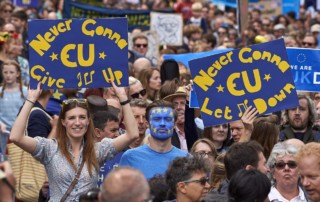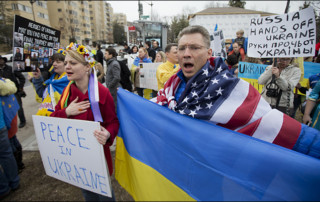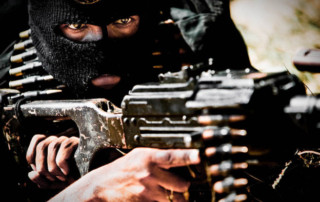Past Programs
The Nuclear Road Ahead: Challenges for President Donald J Trump
December 05, 2016 James Doyle, Jesse Guillen, Cheryl Rofer and Arvid Lundy We’ve heard more than usual about nuclear weapons, both in the campaign and from Russia. The UN has decided to consider a ban on nuclear weapons, like the bans on chemical and biological weapons. Who’s got nuclear weapons and where? We’ll
The European Union: Past, Present, Future
October 27, 2016 Dr. Joe Jupille In his talk, Dr. Jupille takes us on a tour of the EU’s inauspicious beginnings, its bold present and conceivable future. At root, the June 24, 2016 British referendum to exit the EU reflects the Union’s fundamental dilemma: an “ever closer union.” An “ever closer union” makes
How Russia Views the World
October 14, 2016 Ambassador Kenneth Yalowitz and Mikhail Alexseev Twenty-five years ago, the Soviet Union collapsed and the Kremlin’s view of the world changed dramatically. Suddenly, the Russian Federation, the Soviet Union’s successor state internationally, was surrounded by 14 newly independent nation-states, each with its own interests and relationships with Moscow and the world. All
Terrorism and the Middle East in 2016: Next Steps
September 12, 2016 Dr. Emile Nakhleh The Islamic State (ISIS or ISIL) continues to threaten the Middle East region, the United States and the world. What are the ideological and policy factors that drive it, and what lies behind its apparent resiliency? In contrast with its predecessor terror group, al-Qa’ida, the “jihadist” threat from
A Special Showing of “America’s Diplomats”
June, 2016 This one hour documentary on June 23 from 12-2 explores the role of diplomacy in shaping American history and focuses on the people who have staffed our embassies, consulates and US Department of State throughout our history, what their lives are like and what they do. This story begins with Benjamin Franklin and his
Doomed to cooperate: How American and Russian nuclear scientists joined forces to avert some of the greatest post-Cold War Dangers
March 18, 2016 Siegfried. S. Hecker: Professor at Stanford University’s Center for International Security and Cooperation Nuclear risks changed dramatically when the Soviet Union collapsed. Suddenly the world was threatened more by Russia’s weakness than its strength. Never before had a country with the capacity to destroy the world experienced such turmoil.









